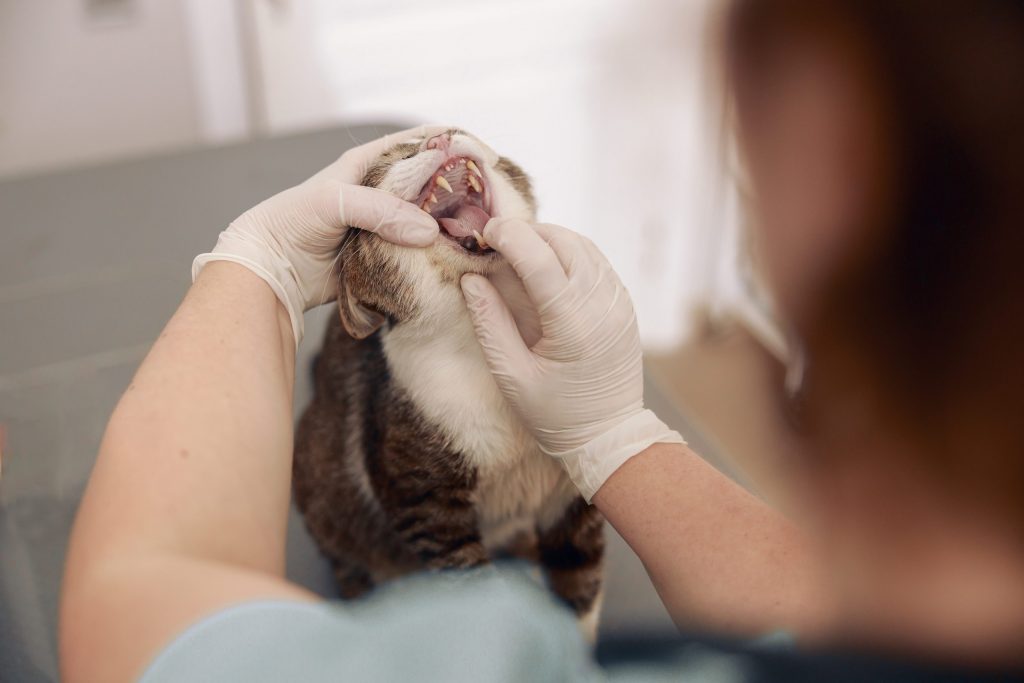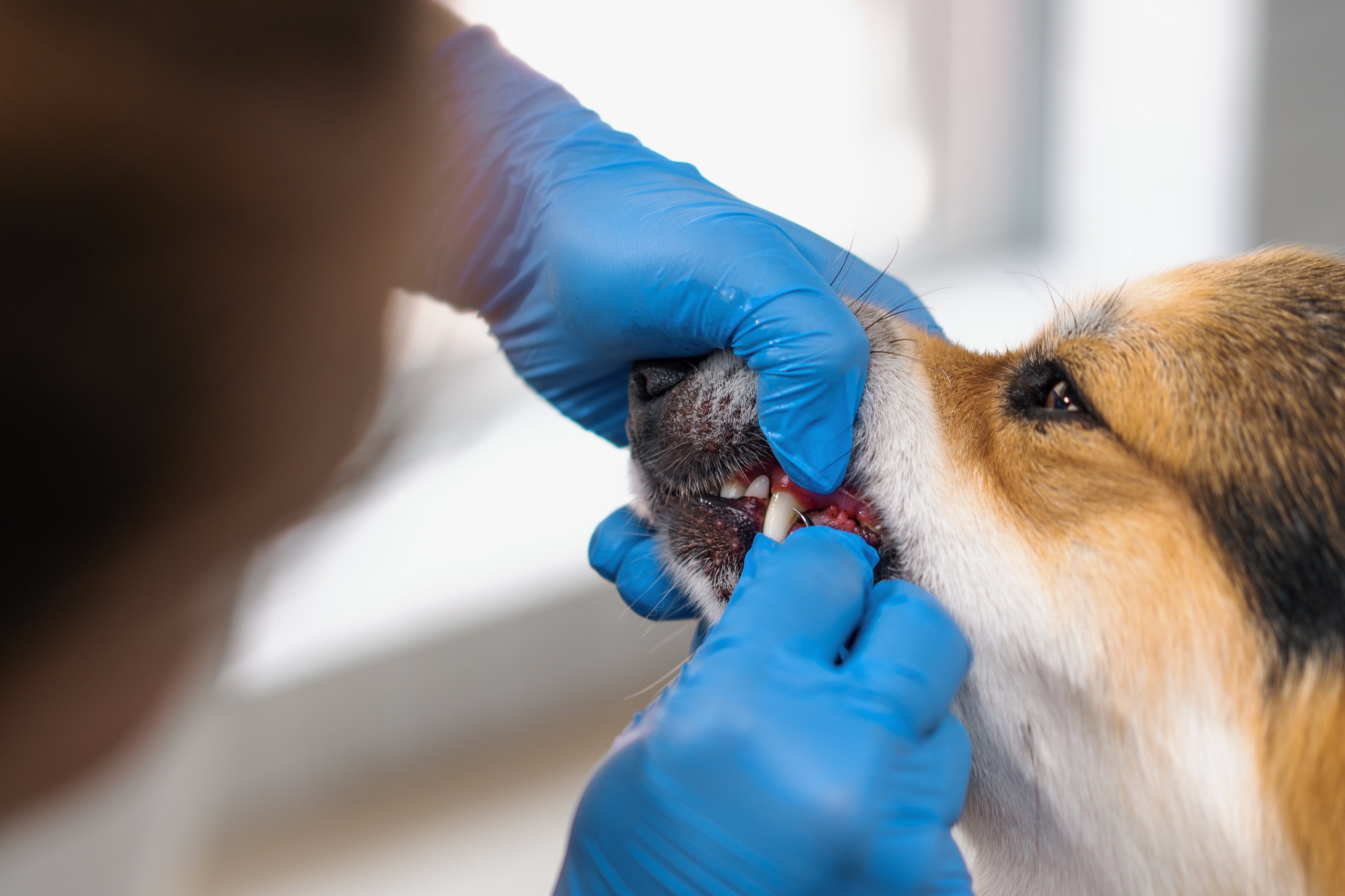Many pet owners forget to give their pets good teeth care, which is important for their overall health and well-being. When tartar and plaque build up on teeth, dogs and cats are just as likely as people to get painful gum diseases and gingivitis. If you don’t take care of your teeth and gums, you could get illnesses that can hurt your important organs and cause heart disease and other diseases. Not only does getting their teeth cleaned every six months keep them from getting these dangerous diseases, it also makes their lives a lot better. People who regularly take their pets to the vet can help them live longer, better, and happy lives. This important part of pet care talks about how important it is to get your pet’s teeth cleaned by an expert and practice good oral hygiene at home. This will give you a full picture of your pet’s health.
Understanding the Risks of Poor Dental Hygiene
It’s important for pets to brush their teeth every day, too, so they don’t get gum disease, tartar buildup, or lose teeth. When tartar builds up on their teeth, it can cause gum disease, which is marked by swelling, on its own. This could make your animal friend sad, which could make them eat or play less. Gum disease can get worse over time, causing tooth loss and other more serious health issues if it is not managed.
Bad oral health may also affect other parts of your pet’s body besides the mouth. Mouth-based bacteria can enter the circulation and aggravate major disorders including renal disease and heart attack. Therefore, the general well-being of your pet depends on maintaining clean and healthy teeth for it. Good home dental care and routine dental visits can avoid these uncomfortable issues and keep your pet happy and healthy for many years to come!

Recognizing Signs of Dental Problems in Pets
Regarding the oral condition of your dog, you should be alert for typical indicators suggesting problems. Often the first indication something is not quite right is bad breath; it may seem like a minor annoyance but might indicate underlying dental problems. Furthermore, dental discomfort may be indicated if you observe your pet pal struggling to chew their preferred goodies. Note any changes in their feeding patterns; they might be attempting to avoid unpleasantness.
Red or inflamed gums raise still another red signal. Healthy gums should be pink and firm; hence, it is time to act if you see any bleeding or irritation. Early on identification of these signs is vital. Untreated dental disorders can worsen and cause more major medical concerns like infections affecting other areas of the body. If you observe any of these symptoms, don’t hesitate—schedule a vet appointment quickly to make sure your dog stays content and healthy!
Benefits of Regular Veterinary Dental Check-Ups
Maintaining your dog’s general health and avoiding dental disorders depend on regular veterinarian visits including dental cleanings and exams. Frequent visits let your veterinarian keep an eye on your dog’s oral condition, looking for any indicators of problems such gum disease, cracked teeth, or other conditions you might not see at home. Early identification of these problems may help you prevent more major diseases later on, therefore sparing your pet from suffering and maybe costly therapies.
This procedure is much enhanced by professional dental cleanings. Your veterinarian may examine your dog’s mouth carefully under anesthesia during a cleaning to guarantee a safe and complete view of their teeth and gums. Where home brushing sometimes fails, this thorough cleaning eliminates tartar and plaque both above and below the gum line. Your veterinarian can also identify underlying issues and provide a customized treatment plan to keep your dog’s mouth healthy and their smile brilliant!
At-Home Dental Care Tips for Pets
Maintaining oral health for your dog doesn’t have to be a bother! Among the greatest methods to prevent tartar and plaque is regular brushing. Daily brushing of your pup’s teeth should be done using a dog-specific toothbrush and toothpaste produced especially for pets. Start modest if brushing sounds difficult. Dogs take time to adjust to the method, hence be patient and consistent; it will soon become second nature.
Apart from brushing, including dental chews in your dog’s diet might be an interesting approach to encourage oral health. Search for natural chews meant to help your dog enjoy clean teeth. You could also take into account a dental diet; their particular texture helps to lower plaque accumulation. These especially designed meals might Recall that dental health is a journey; so, include it routinely in your pet care schedule and soon enough it will seem as natural as feeding and walking your animal companion!

Conclusion
Making pet dental care a priority guarantees that our beloved pets will live lifetime of health, comfort, and happiness. As we give our own dental hygiene first priority, it’s important to understand that consistent dental treatment for dogs can avoid major health concerns ranging from painful gum disease to systemic disorders compromising the heart and other organs. Pet owners may significantly help to preserve the oral health of their dogs by following a schedule of at-home dental care including frequent brushing and dietary choices as well as by keeping consistent veterinarian visits for expert cleanings and evaluations. See your veterinarian for customized recommendations, and include dental care into your pet’s health schedule to ensure their teeth remain brilliant and their life is vivid for many years to come.


